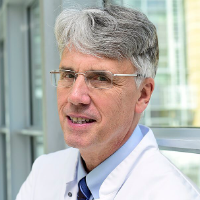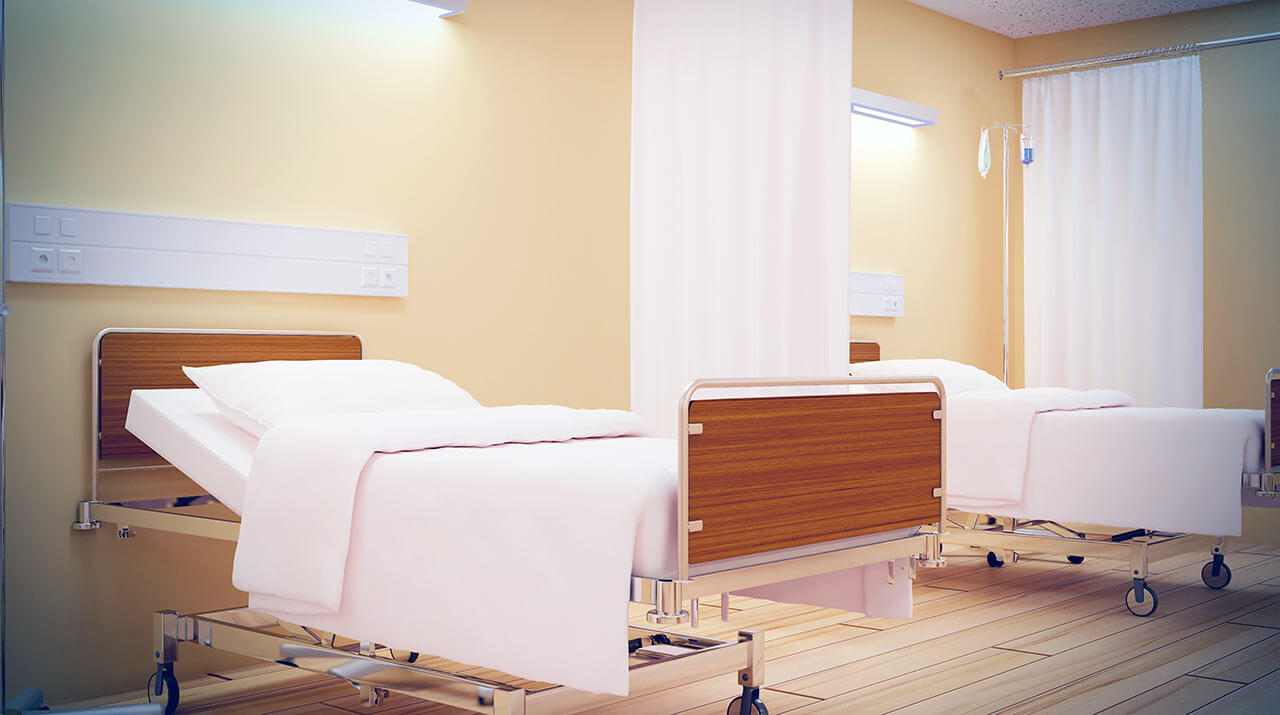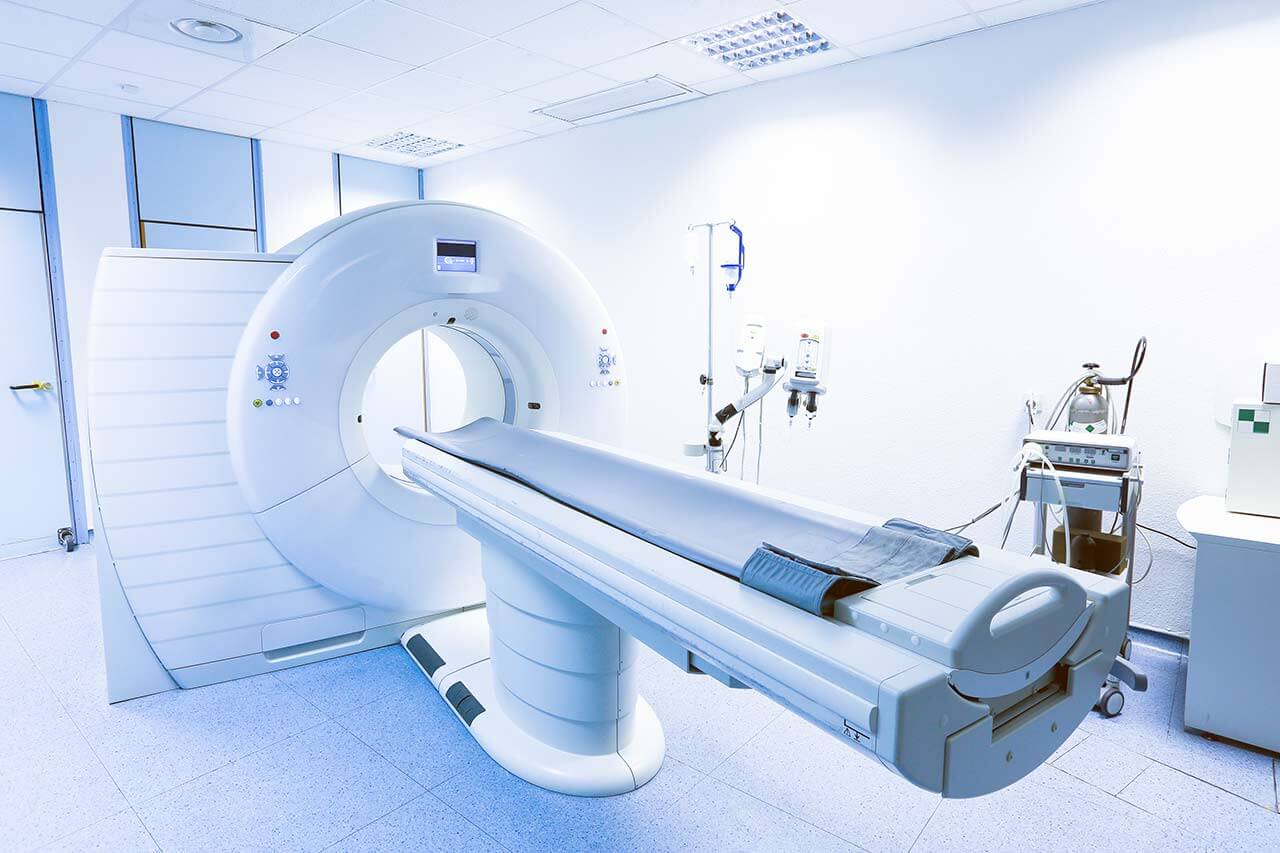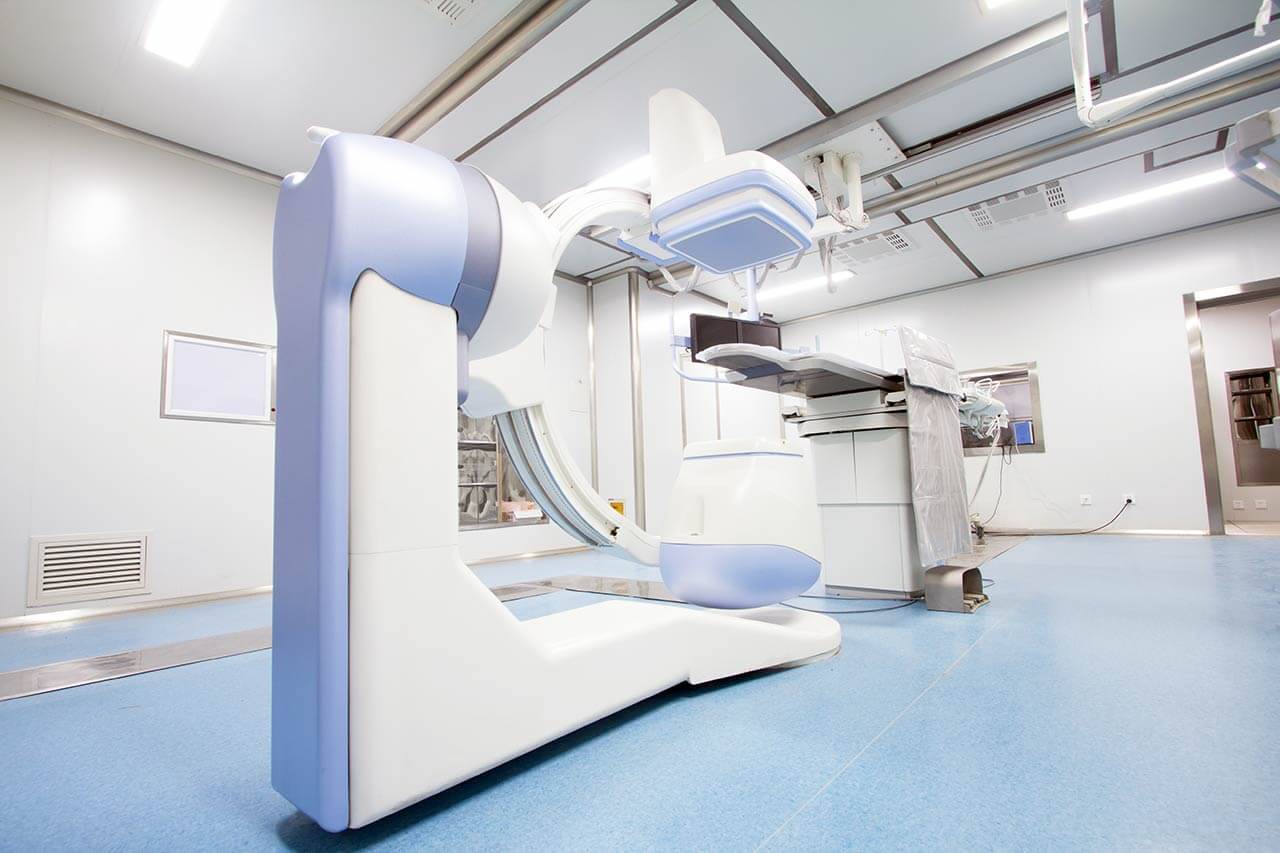
About the Department of Nuclear Medicine, Interventional Radiology and Neuroradiology at University Hospital Greifswald
The Department of Nuclear Medicine, Interventional Radiology and Neuroradiology at the University Hospital Greifswald provides the full range of medical services in the fields of its competence. The medical facility has advanced infrastructure and equipment for imaging tests and radioisotope diagnostics. The department's doctors also successfully perform many therapeutic procedures under imaging guidance and therapy with radionuclides. CT and MRI scans, including their modern modifications (for example, diffusion MRI or perfusion MRI), angiography, scintigraphy, PET-CT, SPECT-CT, and other tests are performed in the department's diagnostic rooms. Therapeutic procedures in the fields of interventional radiology and neuroradiology are performed under imaging guidance. These are stent implantation, vascular balloon dilatation, sympathicolysis, thrombolysis, chemoembolization, etc. The specialists in nuclear medicine treat patients with radiopharmaceuticals. Of particular interest to the department's doctors is the treatment of thyroid diseases, bone metastases, and liver tumors. The department's medical team has deep expert knowledge and high professional skills to provide patients with effective care. In addition, it is important for doctors to take into account the patient's individual needs and wishes, so they pay attention to personal communication and building trusting relationships.
The Head Physician of the department is Prof. Dr. med. Norbert Hosten. Prof. Hosten is the author of a number of textbooks on radiology, including one on the X-ray diagnostics of eye tumors. He is the author of more than 250 scientific publications and has held numerous invited lectures in a broad range of subject fields, such as telemedicine, radiological diagnostics of the eye, MRI, etc.
The priority focus of the department's medical team is interventional radiology. Doctors most often perform angioplasty and stent implantation to eliminate obstructions and stenosis of the blood vessels and hollow internal organs, embolization and chemoembolization to treat malignant tumors and metastases, uterine artery embolization, and transjugular intrahepatic portosystemic shunting. All manipulations are performed under the guidance of X-ray, CT, or MRI scans, which ensure their highest accuracy. The specialists at the medical facility take a responsible approach to the choice of the treatment method, and therefore comprehensive diagnostics precede the prescription of an intervention, the results of which are assessed in cooperation with doctors from related disciplines. For example, interventional radiologists consider chemoembolization in patients with liver cancer during interdisciplinary tumor boards with oncologists, hepatologists, radiation therapists, and other specialists.
The medical facility also offers services in neuroradiology. The doctors in this specialty focus on patients with carotid artery stenosis, brain aneurysms, and dural arteriovenous fistulas. Despite the absence of severe symptoms, carotid stenosis significantly increases the risk of a stroke, so doctors strongly recommend treating the pathology in a timely manner. The department's neuroradiologists eliminate carotid artery stenosis with the help of stent implantation. The interventional procedure is performed under imaging guidance using local anesthesia. The pathological focus is approached through a puncture in the radial, brachial, or femoral artery, through which a stent (a special metal frame) is delivered to the carotid artery affected by atherosclerosis and implanted in its lumen. Doctors implant special platinum coils (coiling) to treat brain aneurysms. The implantation is performed using endovascular techniques under imaging guidance. Dural arteriovenous fistulas are treated with endovascular embolization procedures.
The department's range of services is complemented by the use of radiopharmaceuticals for treatment. Radioiodine therapy for treating benign and malignant thyroid pathologies is one of the most popular procedures in this area. Radioactive iodine therapy is indicated for hyperthyroidism and thyroid cancer (after surgery). Radioiodine therapy is the most sparing and safest for patients because radioactive iodine affects only the thyroid gland without harming other organs. A patient takes radioactive iodine in the form of a capsule or liquid. The therapeutic effect is achieved due to local radioactive irradiation, which leads to the gradual destruction of thyroid cells and metastases of thyroid tumors.
The specialists in nuclear medicine also successfully perform pain management with radiopharmaceuticals for bone metastases, for example, due to prostate cancer, breast cancer, or other cancers with osteoblastic metastases. This method improves the quality of life and relieves pain for up to 4 months. The advantages of this type of pain management include a low risk of side effects and a minor radiation exposure. In addition, the treatment is provided on an outpatient basis.
The department also offers selective internal radiation therapy (SIRT) with intra-arterial administration of Yttrium-90 to treat liver tumors. Another option for radionuclide therapy to treat liver cancer is iodine-131-lipiodol therapy. In this case, the radioactive agent accumulates only in the tumor and does not affect other organs. This ensures a higher radiation load on atypical cells, which contributes to their destruction.
The department's key clinical focuses include:
- Nuclear medicine
- Iodine-131 therapy for benign and malignant thyroid pathologies
- Hyperthyroidism caused by nodular goiter, autoimmune process, etc.
- Thyroid cancer after surgery (treatment of recurrences and metastases)
- Pain management for bone metastases
- Therapy for liver tumors
- Selective internal radiation therapy (SIRT) using Yttrium-90
- Internal radiation therapy with iodine-131-lipiodol
- Antitumor therapy with radioactive antibodies
- Iodine-131 therapy for benign and malignant thyroid pathologies
- Interventional radiology
- Angioplasty and stent implantation
- Sympathicolysis
- Embolization and chemoembolization for treating malignant tumors and metastases
- Uterine artery embolization
- Transjugular intrahepatic portosystemic shunting
- Neuroradiology
- Carotid artery stent implantation
- Coiling for brain aneurysms
- Endovascular embolization for dural arteriovenous fistulas
- Interventional pain management for chronic back pain
- Other medical services
Curriculum vitae
Higher Education and Professional Career
- 1980 - 1986 Human Medicine studies at the Free University of Berlin.
- 1986 Admission to medical practice.
- 1987 Thesis defense.
- 1987 - 1992 Internship as a Specialist in Radiology at the Westend Hospital and the University Hospital Charite Berlin.
- 1992 Board certification in Radiology.
- 1993 - 1994 Senior Physician, Charite University Hospital Berlin.
- 1994 - 2000 Head of the Department of Radiology.
- 1994 Habilitation and Venia Legendi in Radiology.
- 1999 Extraordinary Professorship at the Humboldt University of Berlin.
- 2001 Invitation to the Chair of Diagnostic and Interventional Radiology at the University of Greifswald, and Head Physician of the Department of Nuclear Medicine, Interventional Radiology and Neuroradiology at the University Hospital Greifswald.
- Since 2008 Chairman of the Board of Directors "Telemedicine in the Euroregion Pomerania".
- 2013 - 2015 President of the German Radiological Society.
Prizes, Awards and Distinctions
- October 2015 Pomerania Nostra Award for Merit in Telemedicine in Pomerania Euroregion, University of Greifswald and University of Szczecin.
Photo of the doctor: (c) Universitätsmedizin Greifswald




